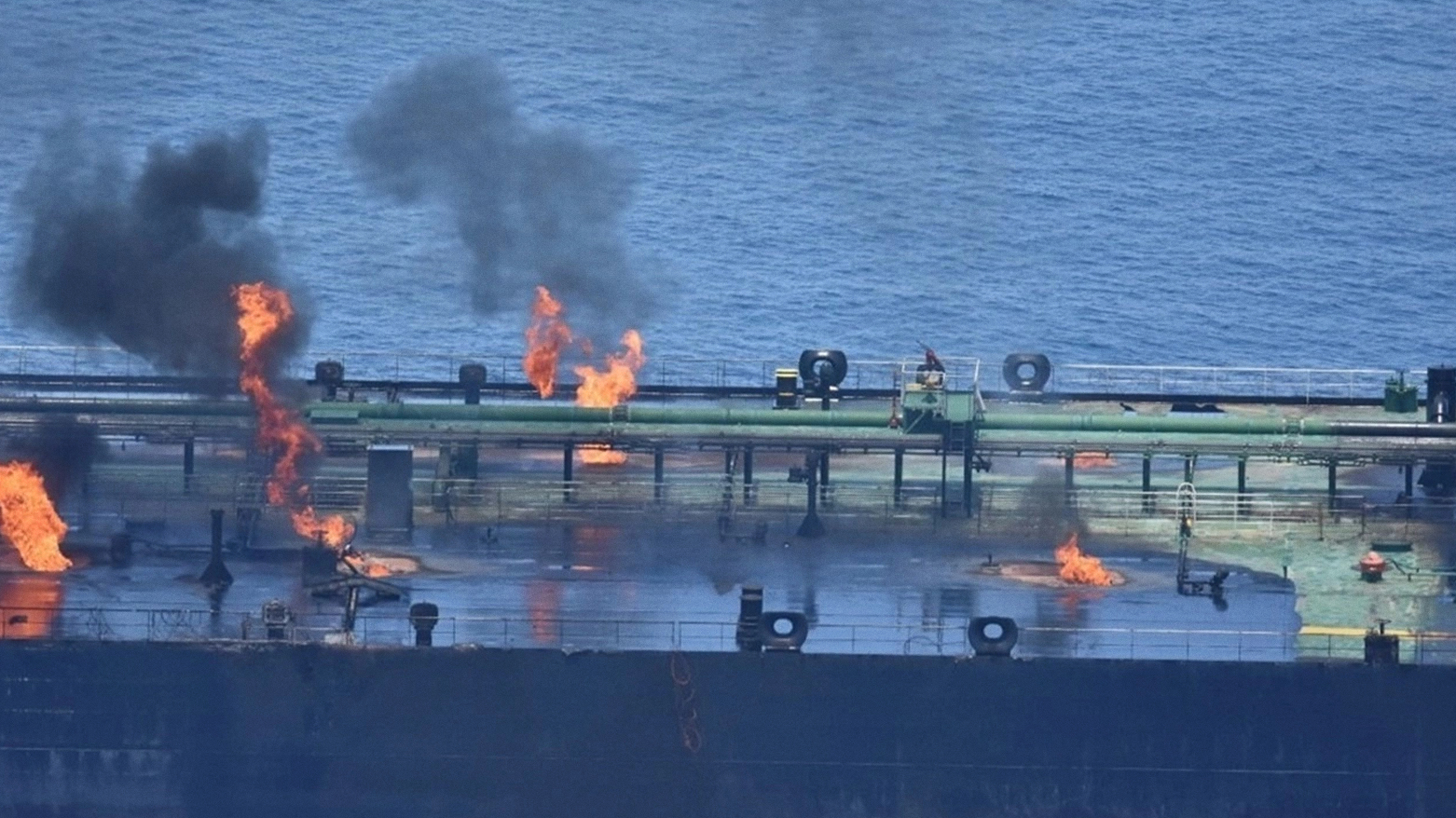Houthi Attacks Continue; as Stricken Tanker Burns in Red Sea
The Houthis have “disrupted the $1 trillion in goods that pass through the Red Sea each year” and “halted some aid shipments to conflict-ravaged Sudan and Yemen," AP reported.

WASHINGTON DC, United States (Kurdistan 24) – Deputy Pentagon Press Secretary, Sabrina Singh, confirmed to journalists on Thursday that the large, Greek-owned and Greek-flagged oil tanker, the MV Delta Sounion, which was attacked in the Red Sea by the Houthis on Aug. 21, remained immobilized there and was still ablaze.
Houthis Hurt Arabs the Most
The Houthis claim to be acting in support of Hamas in its war with Israel, but their attacks, mostly, have nothing at all to do with that conflict! The ship they attacked, the MV Delta Sounion, was carrying oil from Iraq to Greece!
Yet the Houthis are scarcely challenged on their false and misleading claims. Moreover, once they disabled the ship, they planted explosives on its deck, setting the tanker ablaze. That act of sabotage may well have made for impressive theater—the Houthis actually released a video!--but it had, and continues to have, very negative potential.
The fires aboard the MV Delta Sounion may create a massive environmental disaster, as the tanker carries one million barrels of crude oil, and it can spill into the Red Sea. Should that happen, it is Yemenis themselves who would suffer the most.
Fishing is an important source of food and income for the impoverished country. Any major oil spill will contaminate Yemen’s Red Sea coast and kill much of the life there, including fish and coral. Nonetheless, the Houthis continue their attacks on international shipping.
As the Associated Press reported on Wednesday, the Houthis’ attacks have “disrupted the $1 trillion in goods that pass through the Red Sea each year” and “halted some aid shipments to conflict-ravaged Sudan and Yemen.”
Indeed, according to U.S. officials, “the people of Sudan are facing the worst humanitarian crisis in the world,” because of the fighting in that country. Even getting the most basic foodstuffs to the population is a major challenge—and the Houthis are merely adding to the difficulties.
Read More: Sudan Crisis Talks Make Progress on Humanitarian Aid Access
Thus, it would seem that the Houthis are doing more harm to Arab populations, whether in Yemen itself, or in Sudan, than to any other party.
MV Delta Sounion
Initially, the Houthis threatened to attack any ships that might try to rescue the stricken tanker, the MV Delta Sounion. However, following a strong U.S. denunciation of the Houthis’ “reckless acts of terrorism,” Iran’s U.N. mission in New York issued a statement to the contrary, saying that the Houthis would allow the ship to be salvaged.
Read More: Iran: Houthis to allow Leaking Oil Tanker to be towed to avoid Environmental Disaster
The European Union (EU), of which Greece is a member, has taken charge of the salvage operation. Although the EU has a naval presence in the area, private companies are in charge of the salvage operation.
That EU naval operation is formally known as Operation Aspides, and it has its operational headquarters in Greece. As AP reported, the EU’s Operation Aspides mission said that “the private companies responsible for the salvage operation have concluded that the conditions were not met to conduct the towing operation and that it was not safe to proceed.”
“Alternative solutions are now being explored by the private companies,” it explained.
It is unclear why the situation appeared unsafe. AP suggested it could be because of the fires aboard the vessel. Others have suggested it is the broader environment, in which Houthi attacks continue.
Ongoing Houthi Attacks
“On the morning of Sep. 2, the Iranian-backed Houthis attacked two crude oil tankers, the Panama flagged/owned, Greek operated MV BLUE LAGOON I and the Saudi flagged, owned, and operated MV AMJAD, with two ballistic missiles and a one-way attack uncrewed aerial system [i.e. drone], hitting both vessels,” CENTCOM reported.
“Both vessels are laden with crude oil,” the CENTCOM statement continued. “The MV AMJAD is carrying approximately two million barrels of oil, almost twice the amount onboard the Greek-owned MV DELTA SOUNION, which the Houthis attacked on Aug. 21.”
“Currently salvage efforts are underway in the Southern Red Sea for the disabled MV DELTA SOUNION, which is still on fire and threatens the possibility of a major environmental disaster.”
“These reckless acts of terrorism by the Houthis continue to destabilize regional and global commerce, as well as put the lives of civilian mariners and maritime ecosystems at risk,” the CENTCOM statement concluded, as it denounced “the irresponsible and careless actions of the Iranian-backed Houthis.”
Later that day, CENTCOM announced that it had “successfully destroyed two missile systems in a Houthi-controlled area of Yemen.”
The next day, on Tuesday, CENTCOM issued a similar statement, explaining that it had destroyed “an Iranian-backed Houthi missile system in a Houthi-controlled area of Yemen.”
